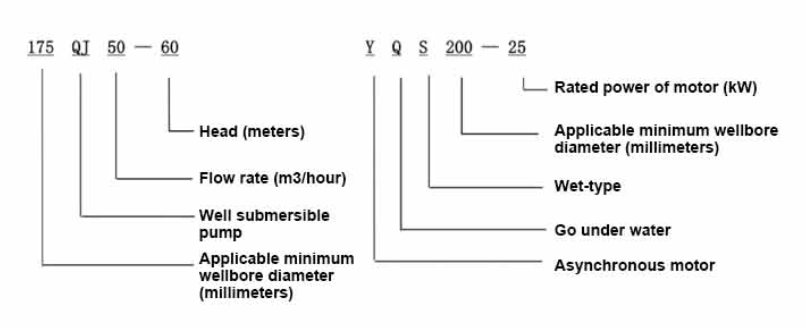Jul . 28, 2024 10:00 Back to list
Exploring the Efficiency and Applications of Deep Well Suction Pumps in Modern Water Systems
Deep Well Suction Pumps An Essential Component in Water Management
Deep well suction pumps play a crucial role in the extraction of groundwater, serving a variety of applications including agricultural irrigation, rural water supply, and industrial processes. Designed to operate effectively in challenging conditions, these pumps can draw water from significant depths, typically exceeding 25 feet, making them indispensable in regions where surface water is scarce or unreliable.
The Mechanism of Deep Well Suction Pumps
At the heart of a deep well suction pump is its ability to create a vacuum that facilitates water movement. These pumps operate based on the principle of atmospheric pressure as the pump impeller spins, it reduces the pressure inside the pump, allowing atmospheric pressure to push water up from the well. This mechanism requires a well-constructed system of pipes and connections to ensure that air does not enter the line, which could compromise the pump’s efficiency.
Deep well suction pumps typically consist of several key components, including the motor, impeller, casing, and suction pipe. The motor provides the necessary energy to drive the impeller, which is the rotating component that imparts velocity to the water. The casing, or the outer shell, aids in managing the flow of water and provides structural integrity.
Applications and Advantages
Deep well suction pumps are widely used in various sectors. In agriculture, these pumps can facilitate irrigation in areas where rainfall is minimal or inconsistent. Farmers rely on these pumps to maintain their crops, ensuring food security and optimizing yield. In addition, rural areas often depend on deep well suction pumps for potable water supply, providing communities with a reliable source of drinking water.
deep well suction pump

Industrially, these pumps are utilized in mining, construction, and various manufacturing processes. Their ability to handle large volumes of water makes them suitable for dewatering operations, especially in sites with high water tables. The versatility and efficiency of deep well suction pumps contribute to their popularity across different industries.
One of the primary advantages of deep well suction pumps is their ability to operate in a variety of environmental conditions. They are designed to withstand harsh elements, allowing for reliable operation in both rural and urban settings. Moreover, advancements in technology have led to the development of more energy-efficient models, reducing operational costs and environmental impact.
Challenges and Considerations
Despite their many benefits, deep well suction pumps are not without challenges. One of the critical considerations is the depth of the water source. If the water level falls below the pump's capability, it may lead to pump cavitation, causing damage and inefficiency. Regular maintenance is essential to ensure optimal performance and longevity of the pump. This includes checking for any wear and tear on components, ensuring proper alignment, and preventing any blockages in the suction line.
Additionally, groundwater management practices are essential to prevent over-extraction, which can lead to depletion of water sources and adverse environmental impacts. Sustainable practices, such as monitoring the water table and implementing recharge strategies, are crucial in maintaining the balance between consumption and conservation.
Conclusion
Deep well suction pumps are vital tools in modern water management, providing essential services across various sectors. Their ability to efficiently extract groundwater from deep sources ensures a stable supply of water for agricultural, domestic, and industrial purposes. However, responsible use and diligent maintenance are critical to maximizing their benefits while safeguarding water resources for future generations. As technology continues to advance, the potential for even greater efficiency and sustainability in deep well suction pumps looks promising, paving the way for innovative solutions to meet our water needs.
-
Submersible Water Pump: The Efficient 'Power Pioneer' of the Underwater World
NewsJul.01,2025
-
Submersible Pond Pump: The Hidden Guardian of Water Landscape Ecology
NewsJul.01,2025
-
Stainless Well Pump: A Reliable and Durable Pumping Main Force
NewsJul.01,2025
-
Stainless Steel Submersible Pump: An Efficient and Versatile Tool for Underwater Operations
NewsJul.01,2025
-
Deep Well Submersible Pump: An Efficient 'Sucker' of Groundwater Sources
NewsJul.01,2025
-
Deep Water Well Pump: An Efficient 'Sucker' of Groundwater Sources
NewsJul.01,2025
-
 Submersible Water Pump: The Efficient 'Power Pioneer' of the Underwater WorldIn the field of hydraulic equipment, the Submersible Water Pump has become the core equipment for underwater operations and water resource transportation due to its unique design and excellent performance.Detail
Submersible Water Pump: The Efficient 'Power Pioneer' of the Underwater WorldIn the field of hydraulic equipment, the Submersible Water Pump has become the core equipment for underwater operations and water resource transportation due to its unique design and excellent performance.Detail -
 Submersible Pond Pump: The Hidden Guardian of Water Landscape EcologyIn courtyard landscapes, ecological ponds, and even small-scale water conservancy projects, there is a silent yet indispensable equipment - the Submersible Pond Pump.Detail
Submersible Pond Pump: The Hidden Guardian of Water Landscape EcologyIn courtyard landscapes, ecological ponds, and even small-scale water conservancy projects, there is a silent yet indispensable equipment - the Submersible Pond Pump.Detail -
 Stainless Well Pump: A Reliable and Durable Pumping Main ForceIn the field of water resource transportation, Stainless Well Pump has become the core equipment for various pumping scenarios with its excellent performance and reliable quality.Detail
Stainless Well Pump: A Reliable and Durable Pumping Main ForceIn the field of water resource transportation, Stainless Well Pump has become the core equipment for various pumping scenarios with its excellent performance and reliable quality.Detail
